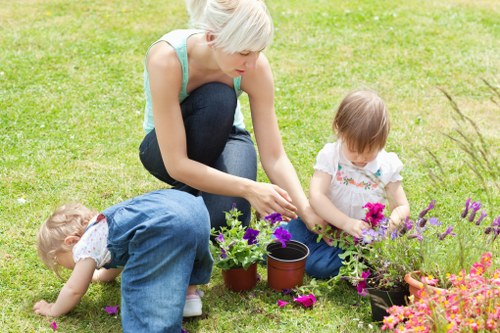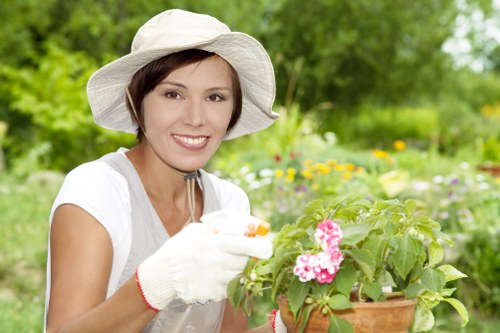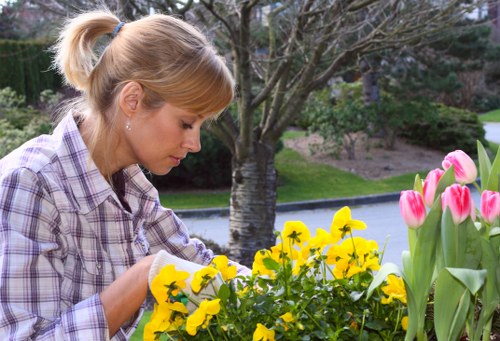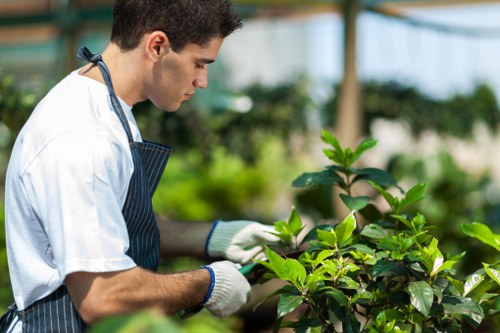Comprehensive Garden Maintenance Services in Camberwell

Maintaining a beautiful garden in Camberwell requires regular care and attention to ensure it remains a vibrant and inviting space. Whether you’re a seasoned gardener or a beginner, understanding the essentials of garden maintenance can help you achieve the lush, healthy garden you desire.
Camberwell’s climate offers unique opportunities and challenges for garden enthusiasts. With its temperate weather and diverse plant life, residents have the perfect environment to cultivate a variety of flora. However, proper maintenance is key to overcoming common gardening hurdles such as pests, diseases, and seasonal changes.
Effective garden maintenance involves a combination of routine tasks and strategic planning. From soil preparation and planting to pruning and pest control, each aspect plays a crucial role in the overall health and appearance of your garden. In this article, we’ll explore the best practices for garden maintenance in Camberwell, providing you with the knowledge and tools to keep your outdoor space thriving.

Essential Garden Maintenance Tasks
Regular maintenance is the foundation of a stunning garden. By staying on top of key tasks, you can prevent problems before they arise and ensure your plants remain healthy and vibrant throughout the year.
1. Watering: Proper watering is essential for plant health. It’s important to water deeply and infrequently to encourage strong root growth. Early morning or late evening are the best times to water to reduce evaporation and prevent disease.
2. Weeding: Weeds compete with your plants for nutrients and water. Regularly removing weeds helps maintain the health of your garden and reduces the spread of unwanted species.

Soil Preparation and Fertilization
The quality of your soil significantly impacts the success of your garden. Proper soil preparation ensures that your plants have the nutrients they need to grow strong and healthy.
Soil Testing: Conducting a soil test helps determine its pH level and nutrient content. This information is crucial for selecting the right fertilizers and amendments to improve soil quality.
Fertilizing: Regular fertilization provides essential nutrients that may be lacking in your soil. Organic fertilizers are a great choice as they improve soil structure and promote beneficial microbial activity.

Pruning and Trimming
Pruning is a vital maintenance task that helps shape plants, remove dead or diseased branches, and promote healthy growth.
When to Prune: The best time to prune varies depending on the type of plant. Generally, late winter or early spring is ideal for most trees and shrubs, while summer pruning can help control growth and improve airflow.
Techniques: Proper pruning techniques involve making clean cuts at the right angles to prevent damage and encourage healing. Using the right tools and methods ensures the longevity and health of your plants.

Pest and Disease Management
Protecting your garden from pests and diseases is crucial for maintaining plant health and preventing the spread of infestations.
Integrated Pest Management (IPM): IPM involves using a combination of biological, cultural, mechanical, and chemical methods to manage pests in an environmentally friendly way. This approach reduces reliance on harmful pesticides and promotes a healthy ecosystem.
Regular Monitoring: Keeping a close eye on your garden allows you to detect early signs of pest infestations or disease outbreaks. Prompt action can prevent minor issues from becoming major problems.
Seasonal Garden Maintenance
Each season presents different maintenance challenges and opportunities. Adapting your care routine to the changing weather ensures your garden remains resilient and beautiful year-round.
Spring Maintenance
Spring is a time of renewal, making it the perfect season to prepare your garden for the growing months ahead.
- Planting: Start by planting new flowers, vegetables, and shrubs to add color and variety to your garden.
- Cleaning: Remove any debris from the winter months, including fallen leaves and dead plant material.
- Soil Preparation: Amend the soil with compost or other organic matter to improve fertility and structure.
Summer Maintenance
Summer brings warmth and plenty of growth, but also requires careful attention to keep your garden thriving.
Watering Strategies
With increased evaporation, it’s important to establish an efficient watering schedule. Consider installing a drip irrigation system to deliver water directly to the roots.
Mulching
Applying mulch helps retain soil moisture, suppress weeds, and regulate soil temperature, providing a stable environment for plant roots.
Autumn Maintenance
Autumn is a time to prepare your garden for the cooler months, ensuring plants are ready to withstand the winter.
- Leaf Management: Rake and compost fallen leaves to prevent mold growth and nutrient loss in the soil.
- Plant Protection: Use frost covers or blankets to protect sensitive plants from early frosts.
- Tool Maintenance: Clean and store garden tools properly to extend their lifespan and ensure they’re ready for spring.
Winter Maintenance
During winter, garden maintenance focuses on protecting plants and preparing for the next growing season.
Pruning and Trimming
Prune dead or damaged branches to promote healthy growth in the spring. Avoid heavy pruning, as it can stress plants during the cold months.
Planning
Take this time to plan out your garden for the coming year. Consider what worked well, what didn’t, and what you'd like to change or improve.
Choosing the Right Plants for Camberwell Gardens
Selecting plants that are well-suited to Camberwell’s climate and soil conditions is essential for a successful garden.
Native Plants: Native species are adapted to the local environment, making them more resilient and easier to maintain. They also support local wildlife and promote biodiversity.
Perennials vs. Annuals: Perennials come back year after year, providing consistent beauty with minimal replanting. Annuals, on the other hand, offer vibrant, seasonal color but require replanting each year.
Enhancing Your Garden with Landscaping
Incorporating landscaping elements can transform your garden into a stunning outdoor oasis.
Hardscaping
Hardscaping includes non-living elements such as pathways, patios, and retaining walls. These features add structure and functionality to your garden, creating designated areas for relaxation and entertainment.
Patios and Walkways
Installing a patio or walkway provides a stable surface for outdoor activities and improves the overall flow of your garden.
Water Features
Adding a water feature, like a fountain or pond, introduces the soothing sound of running water and attracts beneficial wildlife.
Softscaping
Softscaping focuses on the living elements of your garden, such as plants, flowers, and trees.
Flower Beds
Well-designed flower beds add color and texture, serving as the focal points of your garden space.
Trees and Shrubs
Trees and shrubs provide structure, shade, and habitats for birds and other wildlife, enhancing the biodiversity of your garden.
Professional Garden Maintenance Services in Camberwell
While DIY garden maintenance is rewarding, professional services offer expertise and efficiency, ensuring your garden reaches its full potential.
Benefits of Hiring Professionals:
- Expert Knowledge: Professionals are knowledgeable about local plant species, soil conditions, and climate-specific challenges.
- Time-Saving: Hiring a service allows you to enjoy a beautiful garden without the time commitment required for regular maintenance.
- Comprehensive Care: From routine tasks like mowing and pruning to specialized services like pest control and landscaping, professionals provide comprehensive care tailored to your garden’s needs.
If you’re looking for reliable and experienced garden maintenance professionals in Camberwell, consider contacting a local service provider who can customize their offerings to fit your specific requirements.
DIY Garden Maintenance Tips
For those who prefer a hands-on approach, here are some DIY tips to keep your Camberwell garden in top shape:
Regular Monitoring
Frequently check your plants for signs of stress, pests, or diseases. Early detection allows for prompt action, preventing minor issues from escalating.
Proper Tool Maintenance
Keep your gardening tools clean and sharp to ensure efficient and safe use. Regular maintenance extends the life of your tools and makes gardening tasks easier.
Composting
Start a compost bin to recycle kitchen scraps and garden waste. Compost enriches your soil, providing essential nutrients for your plants.
Sustainable Garden Practices
Incorporating sustainable practices into your garden maintenance routine benefits both your garden and the environment.
Water Conservation
Implementing water-saving techniques, such as rainwater harvesting and mulching, helps reduce water usage and ensures your plants receive adequate moisture without waste.
Native and Drought-Resistant Plants
Choosing plants that are native or drought-resistant reduces the need for excessive watering and supports local ecosystems.
Organic Gardening
Avoiding synthetic chemicals in favor of organic alternatives promotes a healthy garden environment and protects beneficial insects and wildlife.
Conclusion
Maintaining a beautiful garden in Camberwell is a rewarding endeavor that enhances your outdoor living space and contributes to your well-being. By following these maintenance tips and considering professional services when needed, you can create a thriving garden that stands the test of time.
Ready to transform your garden? Contact us today to schedule your garden maintenance service and experience the difference a well-tended garden can make.

